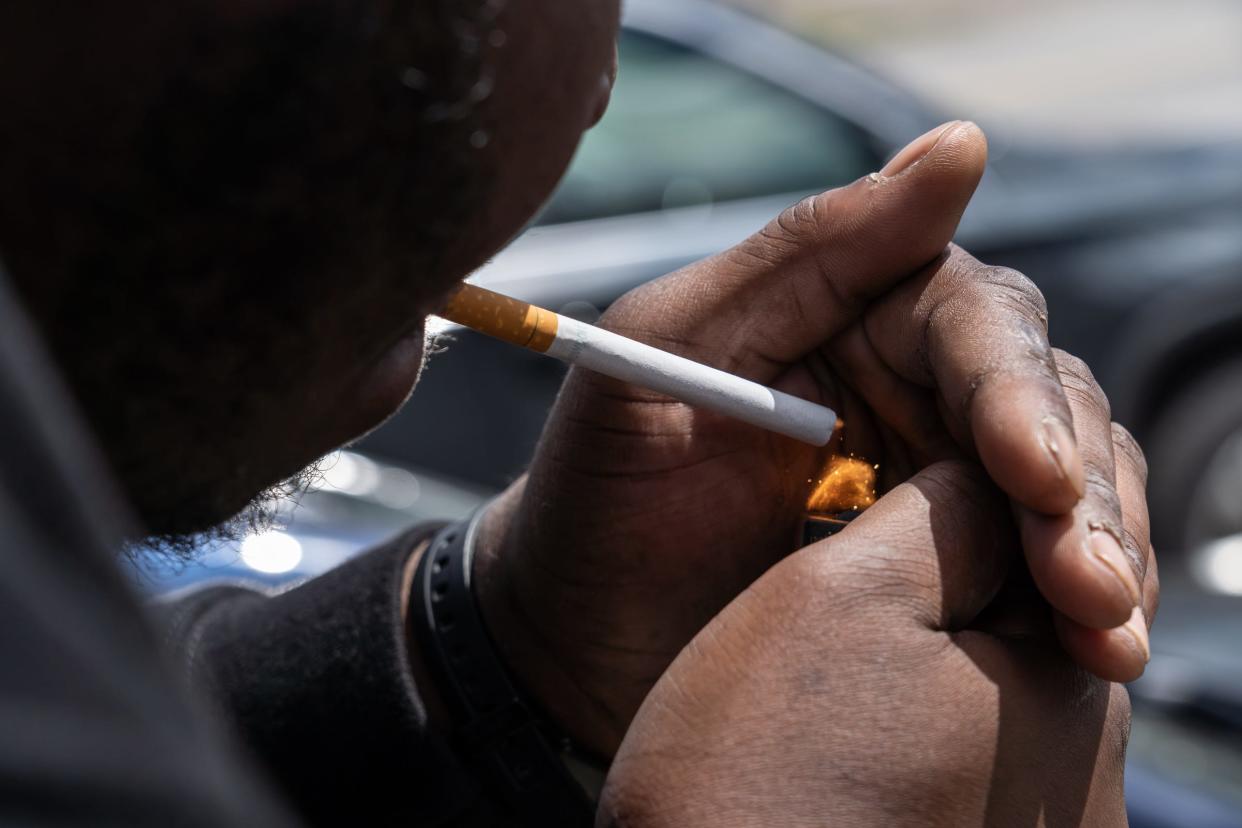Hightower: Tobacco industry's racist tactics enticing Black people with Menthol cigarettes

Stephanie Hightower is president and CEO of Columbus Urban League.
Menthol and tobacco addiction endangers the health and shortens the lives of people of color.
Here in Central Ohio, roughly 80 churches, mosques and other faith institutions are coming together for Menthol Sunday May 15.
We will stand up against the tobacco industry and call out the direct targeting they have used against us for generations.
More: FDA announces plan to ban menthol cigarettes, 'forever' targeted at Black Americans
The topic is especially timely this year. On April 28, the federal Food and Drug Administration announced a proposed rule that would eventually phase out the sale of menthol cigarettes and flavored cigars.

This proposed rule recognizes the danger menthol cigarettes pose to our communities, but thanks to the slow pace of bureaucratic legal processes, it will be several years before this proposed rule becomes law.
If there is a change in presidential administrations during this time, the rule could be reversed. Meanwhile, the tobacco industry will continue to lure kids into a lifetime of addiction.
We cannot wait for the wheels of the federal government to turn. We need our local governments to take action on this health crisis – now.
More: Lung association says Ohio is failing to curb tobacco use
While we have witnessed the ravages of all tobacco, flavored tobacco products pose a unique threat to the health of our residents. Tobacco companies offer flavors for a simple reason – to entice the most vulnerable and most at-risk members of our community to become addicted to nicotine.
The first flavored tobacco products were menthol cigarettes, which use a mint taste to disguise the harshness of the smoke. The tobacco industry developed menthol cigarettes as a means of more gently introducing new consumers to nicotine – and making it much harder for them to quit.
In the 1960s, the tobacco industry began a well-documented, decades-long campaign to market menthol cigarettes to the Black community through targeted advertising, lower prices in Black neighborhoods, and free product samples at Black community events.
As a result, the percentage of Black smokers using menthol has increased from 10% in the 1950s to 85% today.
This is not an effect of personal preference, but of racist targeting. Meanwhile, tobacco claims approximately 45,000 Black lives each year, making it the leading cause of preventable death in the Black community.
More: Vaping scrutiny has faded amid COVID, but research continues
The CDC has classified youth e-cigarette use as an epidemic that has reversed decades of effective effort to persuade kids to reject tobacco. Flavors such as bubblegum, cherry dynamite and popcorn as well as slick social media marketing have enticed half of our high school kids to try vaping, and a third of them to use regularly.
Parents, school principals, teachers and health professionals find themselves at wits' end facing this crisis driven by candy-flavored, but very addictive nicotine.
Importantly, nicotine dramatically increases the risk of drug use and mental illness for kids and harms the developing brain by negatively impacting attention, learning, mood, impulse control, and memory. Tobacco companies know this and yet shamelessly package their products in bright colors and flavor them to taste like fruit and candy.
While we hope the FDA will one day stop the sale of menthol cigarettes on the national level, hope is not a strategy.
We need local action to protect kids by ending the sale of all flavored tobacco products, including menthol cigarettes. The health of our kids and the lives of our residents are at stake.
Stephanie Hightower is president and CEO of Columbus Urban League.
This article originally appeared on The Columbus Dispatch: Opinion: Does the tobacco industry purposely target Black smokers?

